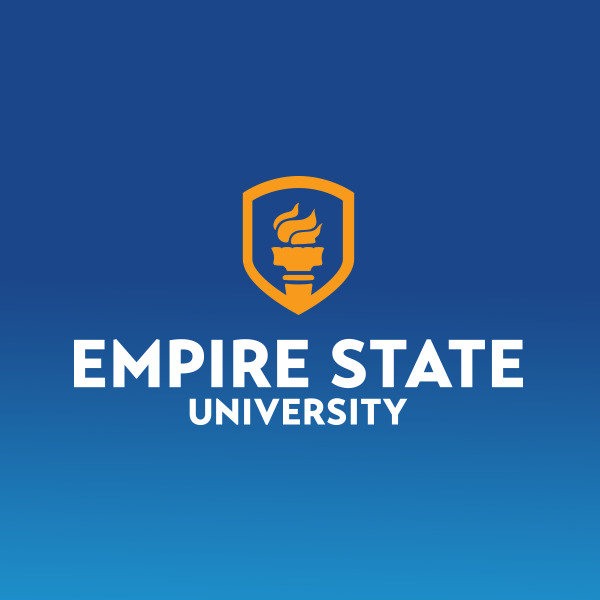July 17, 2023
SUNY, more than 200 organizations targeted in MOVEit-related breaches

(SARATOGA SPRINGS, NY — July 17, 2023) Empire State University has been notified by three of its vendors—the National Student Clearinghouse (NSC), TIAA CREF, and Corebridge—that a data breach related to MOVEit Transfer software may have included the personal information of students, employees, and retirees.
This breach may have affected SUNY and its campuses have been assured that each entity’s systems have been secured and they are working with the FBI and global cyber security experts in an ongoing investigation. SUNY campuses are currently working to inform their students, faculty, and staff, and in the coming weeks, notifications from NSC, TIAA CREF, and Corebridge will be sent to potentially impacted individuals.
In the meantime, SUNY Empire employees, students, and retirees can use their right to a free annual credit report from each of the major credit reporting companies Experian, Equifax or TransUnion.
Concerned parties may also wish to consider contacting the Federal Trade Commission at https://www.ftc.gov/ or https://consumer.ftc.gov/features/identity-theft. In addition, here are links from two of the organizations with additional information.
National Student Clearinghouse MOVEit Security Issue: https://alert.studentclearinghouse.org/
Corebridge: www.corebridgefinancial.com/vendor-incident
If you were potentially impacted by the MOVEit incident, you will be contacted by one or more of the organizations. We will update you once we have more information, and we encourage you to read the FAQ below.
Frequently Asked Questions
What is the National Student Clearinghouse and why do campuses provide student information to this organization?
National Student Clearinghouse is a federally-sponsored organization used for sharing and tracking student education-related information for use in federally mandated reporting, as well as for research. It provides trend data and research evidence that many institutions of higher education utilize to improve the academic experience with services that ensure students maximize their academic opportunities and graduate on time. The National Student Clearinghouse helps education go further with innovative solutions that meet reporting, research, verification, transcript, and data exchange demands across the K-20 to workforce continuum.
What does TIAA CREF do for SUNY?
TIAA CREF is a benefits company used by SUNY campuses on behalf of their employees.
What does Corebridge do for SUNY?
Corebridge (AIG) is an investment company used by SUNY on behalf of their employees.
What has the National Student Clearinghouse, TIAA CREF, and Corebridge said about the MOVEit data breach?
- Here is a link for updates on National Student Clearinghouse MOVEit Security Issue: https://alert.studentclearinghouse.org/
- Corebridge: corebridgefinancial.com/vendor-incident
When was the data breach first discovered by the National Student Clearinghouse?
SUNY campuses learned in June that personal identifying information of students may have been compromised due to a global cyber incident. Information technology experts across SUNY launched an investigation to ensure the data breach did not extend to administration or campus systems.
When did TIAA CREF and Corebridge notify SUNY for the MOVEit data breach?
TIAA notified SUNY of the MOVEit data breach on June 16 and then confirmed on June 29 that the breach affected SUNY retirement plan participants and retirees. Corebridge notified SUNY of the MOVEit data breach on June 27 and are still working on who has been affected on the SUNY retirement plans.
Why are SUNY campuses only now reporting the data breach to students, employees, and retirees whose information might be compromised, and to what extent has that delay deepened the vulnerability to identity theft?
SUNY colleges and universities are notifying the broad campus communities and retirees now because personal identifying information may have been compromised and steps have been taken to protect their information. This situation is evolving. At this time, there is enough information to provide to students, employees, and retirees who may have been impacted.
What specific types of personal data have been or may have been compromised?
Though not yet confirmed, based on how campuses utilize National Student Clearinghouse for the purposes of research, the compromised information may include name, date of birth, address, demographics, student identification number, financial account information, and social security numbers.
- TIAA CREF
Potentially, employee or retiree data including personal identifying information and social security numbers may be compromised.
- Corebridge
Potentially, employee or retiree data including personal identifying information and social security numbers may be compromised.
Has there been any known attempt to use any of the compromised data, or any demand for ransom or other action on the part of hackers?
There is no evidence of any attempted use of the compromised data, nor any demand for ransom that SUNY has been made aware of by the National Student Clearinghouse, TIAA CREF, or Corebridge.
What, if any, protective services related to identity theft are being offered by the National Student Clearinghouse, TIAA CREF, or Corebridge to students, employees, and retirees who have been or might have been compromised.
National Student Clearinghouse, TIAA CREF, and Corebridge are responsible for the official notifications, and will send information to impacted individuals. The organizations will provide identify theft protection and credit monitoring for 24 months. They have also informed the New York State Attorney General, Consumer Affairs Bureau, and the New York State Police.
What steps, if any, should such students, employees, and retirees be taking on their own?
SUNY and its campuses recommend that you use your right to a free annual credit report from each of the major credit reporting companies Experian, Equifax or TransUnion.
You may also wish to consider contacting the Federal Trade Commission at https://www.ftc.gov/ or https://consumer.ftc.gov/features/identity-theft
In addition, here are links from two of the organizations where you can find additional information:
- National Student Clearinghouse MOVEit Security Issue: https://alert.studentclearinghouse.org/
- Corebridge: corebridgefinancial.com/vendor-incident